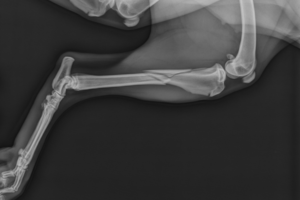Managing the Covid-19 crisis: how the healthcare sector is responding to the national health emergency

SJ Leatherdale, Partner and Head of the Healthcare and Life Sciences Practice, and Rebecca Brandwood, our Healthcare and Education Consultant, discuss how the healthcare system is adapting to the rising demand for critical care services as a result of the Covid-19 pandemic
First and foremost, we want to thank the health and social care services for the challenging but brilliant work they are carrying out to support the UK and public health. We understand this is a very taxing time as we adapt to these unprecedented and constantly evolving circumstances.
Since the outbreak we have, as a nation, seen a strikingly collaborative approach to this crisis, for example private facilities striking an emergency deal with NHS England to block book almost all their services, including facilities and many of their clinical staff. The NHS has also worked in collaboration with the military, voluntary sector and government to create the Nightingale Hospitals at a truly impressive pace. In life sciences, pharma and biotech are heavily involved in the pursuit of a safe and scalable vaccine as well as expediting critical virus testing. But even further across the private sector we have seen incredible support for our healthcare services with top UK brands leading the charge on fundraising efforts, contributing to research and manufacturing PPE equipment
The deployment of medical and nursing students with universities across the country loosening the graduation requirements in order to boost medical staff numbers have truly risen to the challenge of the pandemic. More than 18,700 student nurses and over 5,500 final year medics have opted to join the NHS frontline.
Over the past few weeks, we as a business, have seen a real demand for extra operational management capacity to help direct the emergency patient care services. Acute Trusts are in need of highly experienced managerial leaders to streamline the system of care to ensure each patient is quickly and efficiently supported. HR operational and organisational management has also been a key area in this time of huge change, new ways of working and the inevitable staff absences. There has also been a material interim demand for the short to mid-term transformational skill set - again progressed at speed.
The uptake of technology solutions has been immense. There has been a surge in demand for digital services - to date 38% of people have increased their use of NHS technology since the start of the outbreak, and this is likely to continue to rise. The volunteer responder initiative has secured over 750,000 people (triple its initial target) and is managing task allocation with the mobile app GoodSAM. The development of apps and digital platforms by the NHS in collaboration with several of the big tech firms to help manage the spread of the virus and the strain on health services has also been high on the agenda.
The extreme circumstances have also resulted in long-standing, but very slow moving, technology programmes being fast-tracked to alleviate further stress on services, a key example being the full deployment and implementation of online GP video consultations. The uptake in technology in this time of crisis is a clear indication of the future of the NHS. This alongside the Long-Term Plan set out back in early 2019 to increase efficiency and convenience of access to healthcare services is being evidenced before our eyes as it is being rapidly deployed. The write-off of the NHS debt will trigger a likely redesign of the current NHS budget, almost certainly giving way for more investment in enhancing the current online access to healthcare, as set out in the 2019 plan, spurring on and fast-forwarding conversations around the use of AI, robotics and digital medicine.
The past month has also accelerated the integrated care agenda. Now more than ever, there is a need for the NHS, social care, charity, housing, education, and other public sector services to work together as system leaders to deliver a comprehensive package of whole person care. The impact on public mental health must be addressed by the government amid concerns of a rise in depression and anxiety. With NHS mental health services already under immense strain, it is essential mental health is on an equal footing with physical health to improve access and outcomes for patients. To address the longer-term impacts and recovery of Covid-19, healthcare executives stress the need for new care models to be deployed with further development of system leadership.
Our conversations with healthcare professionals have undeniably highlighted the sense of common purpose which has united the nation. As well as senior healthcare leaders coming out of retirement to play a key role in supporting the thousands of staff from a wider stance, many consultants, nurses and other medical professionals have responded to the call for support to overcome the national health emergency. Furthermore, it has been a huge pleasure to admire the incredible Captain Tom Moore and his £29m (and rising) fundraising endeavour, a truly remarkable man.
The renewed solidarity of the nation and pride of the NHS prompts questions about the future of health and social care in the UK and the impact on the talent pipeline. In the immediate term, management of the crisis is critical, but in the mid to long-term, the healthcare sector will be up against the fall-out of the virus with new demands to be dealt with. We must ask what this recent public and private sector collaboration will bring and whether this has facilitated talent to cross a newly boosted bridge between the sectors.
As medical and care workers continue to be on the frontlines of this pandemic, we must maintain our support and gratitude for their services and, most importantly, respect and admire their personal endurance and sacrifice. We most certainly will be on our doorsteps every week clapping and cheering the ‘Clap for our Carers’ initiative and sharing the rainbows now symbolic of the nation’s appreciation of their momentous efforts.
Thank you from all of us at Odgers Interim.
For more information please contact SJ Leatherdale or Rebecca Brandwood.






